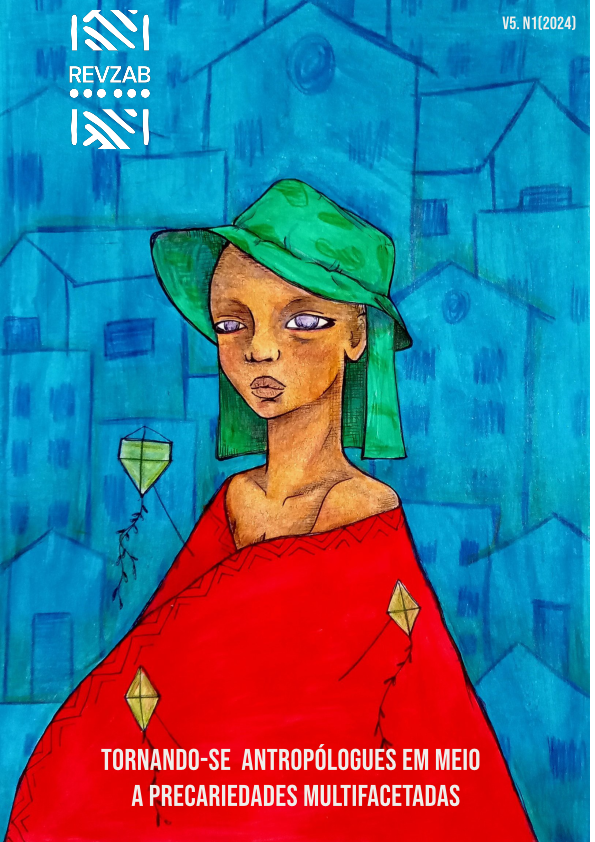Entre mundos e precariedades
fazendo antropologia com micróbios
Palavras-chave:
Antropologia, Micróbios, Autoetnografia, Precariedades, EducaçãoResumo
Neste trabalho reflito sobre minha vida na antropologia entre 2020 e 2024. Mais precisamente, com uma abordagem autoetnográfica, teço comentários que evidenciam parte do meu processo de tornar-se antropólogue em contextos precários. Faço isso a partir de uma discussão multiespécie, em específico utilizando o que tem sido chamada de “antropologia dos/com micróbios”, ao pensar em relações humano-micróbio as quais encontrei-me envolvido durante o recorte temporal aqui abordado. Para tanto, volto aos registros da minha passagem pelo mestrado em Antropologia na UFPI em Teresina, Brasil, em 2020, junto à minha decisão em cancelar a matrícula em tal programa de pós-graduação — momento em que passávamos pelo surto da pandemia do SARS-CoV-2. E em notas da minha ida a Hungria, em 2022, para cursar mestrado em Antropologia em Miskolc, até 2024 — período em que passei por uma severa disbiose intestinal; e no qual tive como foco de pesquisa a produção de vinhos de Tokaj, Hungria, a partir de relações entre humanos e o fungo Botrytis Cinerea. Ambos momentos, ainda que em contextos diferentes, me direcionam para a afirmação de que “disrupções sociais podem causar perturbações microbianas e perturbações microbianas causam disrupções sociais” (Benezra, 2023, p. 14, tradução minha). Com isso, argumento por uma “antropologia como educação” (Ingold, 2016) que nos possibilite refletir sobre mundos outros-que-humanos — aqui vistos em relações humano-micróbio — envoltos na constituição de precariedades, no caso deste artigo, especificamente em processos de formação de antropólogues, como o meu.


